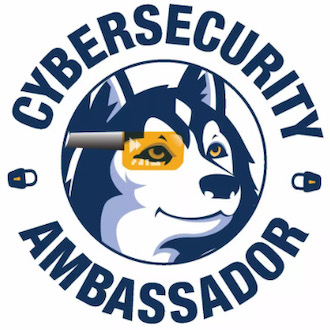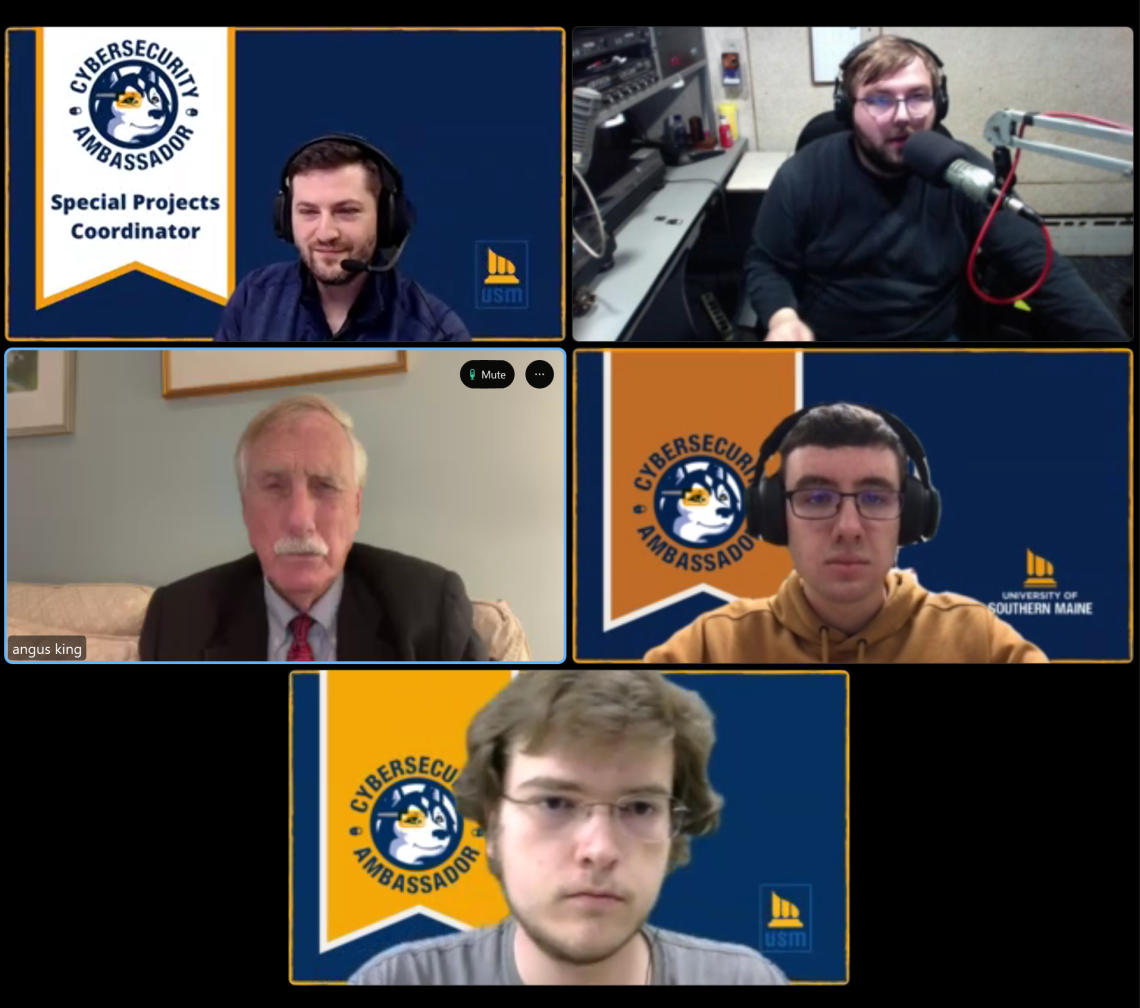Hoping to spread a message of online safety, USM’s Cybersecurity Ambassadors are using a new podcast to get out the word.
“We are trying to reach a wider audience,” said Connor Mayhew, a senior Information Technology major who serves as the new podcast’s executive producer. “We’re talking with people from technology fields, a wide range of people.”
Since the podcast debuted in October, the students have managed detailed, full-length interviews with several people including John Forker, the chief information security officer at University of Maine System, Rob Simopoulos, the cofounder of Portland-based cybersecurity company Defendify, and U.S. Senator Angus King of Maine.

They have also extended their reach, earning inclusion on online services including Apple Podcasts, I Heart Radio, Spotify, Google Podcasts and Stitcher. The podcast is also available on WMPG’s website.
It’s been rapid growth for a group of fewer than a dozen students whose mission is encouraging cybersecurity research and community awareness through outreach events.
“We’re trying to make it easier for people to safely use their online devices,” Mayhew said.
The students have earned the pride of their faculty advisor, Lori Sussman, an assistant professor of Technology and Cybersecurity.
Though she helped them make the connections for some of the interviews, the students did the interviews and created the podcasts entirely on their own.
“It is all them,” Sussman said. “And they are doing extraordinary work.”
Ambassador Bryson Bouffard, also a senior Information Technology major, said they are learning as they go.
“None of us, by any means, are experts at this,” he said.
He and the others work to be prepared for the interviews. In some cases, such as the conversation with Sen. King, the work included research on the Cyberspace Solarium Commission. That commission, on which King served as co-chair, delivered a strategy for cyber deterrence with 80 recommendations.
As the executive producer, Mayhew helped organize the information and wrote some initial questions before sharing them with the others.
Was he nervous talking with the senator and former Maine governor? No, he said.
“I was a little nervous to get the tech all set,” he said, making sure that there would be no glitches when Sen. King was giving them his time. “It’s just getting everything done ahead.”
The interview went smoothly.
“I wasn’t sure what to expect, but it was a natural conversation,” Mayhew said. “He built on our questions.”
Besides the commission, they talked about Maine’s school laptop program, which was created during his service as governor, and the difficulty in getting quality information to the public at a time when the media landscape is fractured with partisanship and information silos.
“Cyber has exacerbated that because of the algorithms and because of the propensity that we all have,” King said. “It’s called ‘confirmation bias: to seek out sources of information we already agree with.’”
Like Mayhew, Bouffard said he was happy with the conversation.
“I get the sense he cared,” he said.
In the end, he hopes each of the conversations reflect the students’ goal that they are taken seriously. After all, in a matter of months, Bouffard plans to be looking for a job in information technology and the work as an ambassador is meant to help him learn and present himself as a professional.
The Cybersecurity Ambassadors are available to speak to about online safety to groups in the university community. For more information, check out their website.


